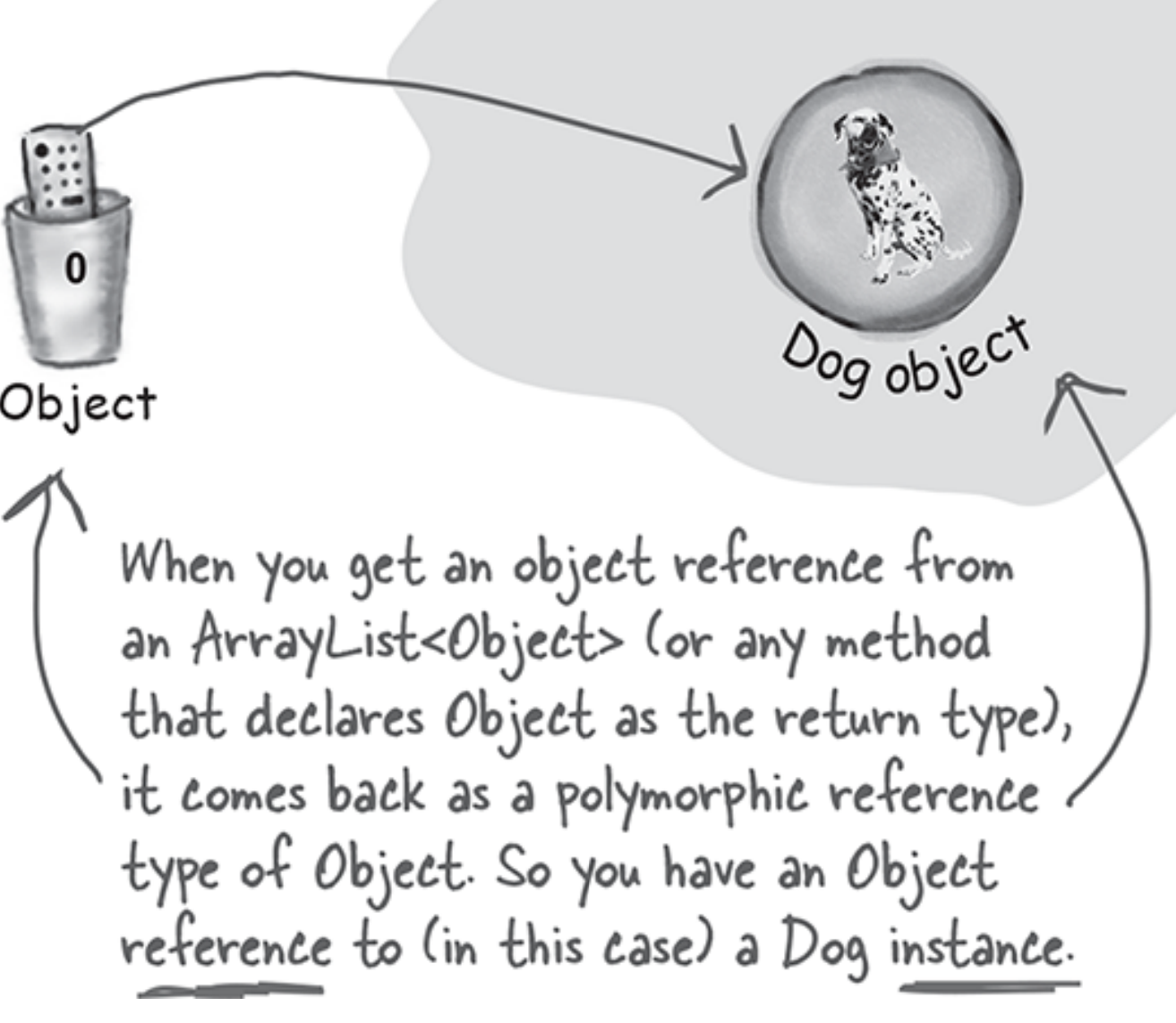Object Class polymorphism
Java
Every class in Java extends class Object
Class Object is the mother of all classes. It is the superclass of everything. Every class you write extends Object.
Any class that doesn’t explicitly extend another class, implicitly extends Object.
For example:
public class Dog extends Object{
}
But wait a minute, Dog already extends something, Canine. That’s OK. The compiler will make Canine extend Object instead. Except Canine extends Animal. No problem, then the compiler will just make Animal extend Object.
Object is a non-abstract class
Because it has method implementation code that all classes can inherit from and use, without having to override them.
SOME methods in Object can be overriden
Only some, but the rest are marked as final. Book encourages to override hashCode(), equals() and toString().
Purpose of Object class
1) Act as polymorphic type for methods that need to work on a class that I make
2) Provide real method code that all objects in Java need, at runtime (this is possible cuz putting that code in Object means all classes can inherit them)
3) for threading
We can’t make our methods take and return Object type
If we do that, it defeats the whole point of “type-safety,” one of Java’s greatest protection mechanisms for your code. With type-safety, Java guarantees that you won’t ask the wrong object to do something you meant to ask of another object type. Like, ask a Ferrari (which you think is a Toaster) to cook itself.
But actually, you don’t have to worry about that fiery Ferrari scenario, even if you do use Object references for everything. Because when objects are referred to by an Object reference type, Java thinks it’s referring to an instance of type Object. And that means the only methods you’re allowed to call on that object are the ones declared in class Object!
Object o= new Ferrari();
//won't work
o.goFast();
Because Java is a strongly typed language, the compiler checks to make sure that you’re calling a method on an object that’s actually capable of responding. In other words, you can call a method on an object reference only if the class of the reference type actually has the method.
Using polymorphic reference of type Object
ArrayList<Object> list = new ArrayList<>();
Dog bitch = new Dog();
list.add(bitch);
//won't compile
Dog d = list.get(0);
It will not compile because when we use ArrayList
Everything comes out of an ArrayList

When an object is referenced by a variable declared as type Object, it can’t be assigned to a variable declared with the actual object’s type (like Dog). And we know that this can happen when a return type or argument is declared as type Object, as would be the case, for example, when the object is put into an ArrayList of type Object using ArrayList
Summary
The compiler decides whether you can call a method based on the reference type, not the actual object type.
The method you are calling on a reference must be in the class of that reference type. It does not matter what the actual object is.
For example, object.hasCode() is a legit method in that Object class. But object.bark is not.
Even if you know the object is capable, the compiler sees it only as a generic Object. For all the compiler knows, you put a Button object out there. Or a Microwave object. Or some other thing that really doesn’t know how to bark.
The compiler checks the class of the reference type—not the object type—to see if you can call a method using that reference